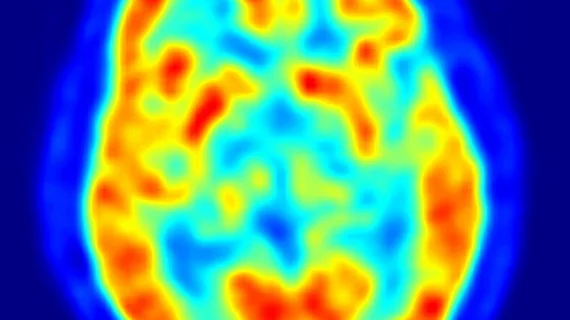Amyloid PET improves diagnosis, treatment in Alzheimer’s patients
For patients with Alzheimer’s disease, amyloid PET imaging can improve diagnosis, diagnostic confidence and treatment, according to a JAMA Neurology study. The method is beneficial whether results are positive or negative.
“Trying to establish Alzheimer’s disease in the earliest phase is a big goal for a memory clinic, along with making a diagnosis as early as possible,” said lead author Amo de Wilde, MD, to Neurology Today. “It's about giving patients as accurate a diagnosis as you can and as early as you can. If the patient has an accurate diagnosis, it allows them to move further, and make decisions about work, finances, driving safety, and clinical trial participation.”
As part of the three-year Alzheimer’s Biomarkers in Daily Practice (ABIDE) project, Dutch researchers offered amyloid PET imaging with fluoride-18 florbetaben to 507 patients—476 at VU University Medical Center’s memory clinic and 31 patients with mild cognitive impairment (MCI) from the University Medical Center Utrecht in the Netherlands.
Patients were in their mid-60s and received a pre-amyloid and post-amyloid diagnosis containing clinical syndrome and suspected etiology. On a scale from zero to 100 percent, neurologists recorded their suspected diagnosis confidence of: AD, vascular, frontotemporal dementia, Lewy body dementia, other neurodegenerative disease or non-neurodegenerative.
De Wilde and colleagues found suspected etiology changed for nearly 25 percent of patients post-amyloid PET—more often because of a negative (31 percent) rather than positive (18 percent) result.
Additionally, neurologists’ diagnostic confidence jumped from 80 percent to 89 percent. After PET imaging, treatment plans were changed in 24 percent of cases.
“The takeaway for this study for clinicians should be that amyloid PET can be a useful diagnostic test when trying to determine the underlying cause for dementia or mild cognitive impairment,” Eric McDade, assistant professor of neurology at Washington University in St. Louis, told Neurology Today. He was not involved in the study. “This is particularly the case when the clinical diagnosis is uncertain and at the mild cognitive impairment stage.”

